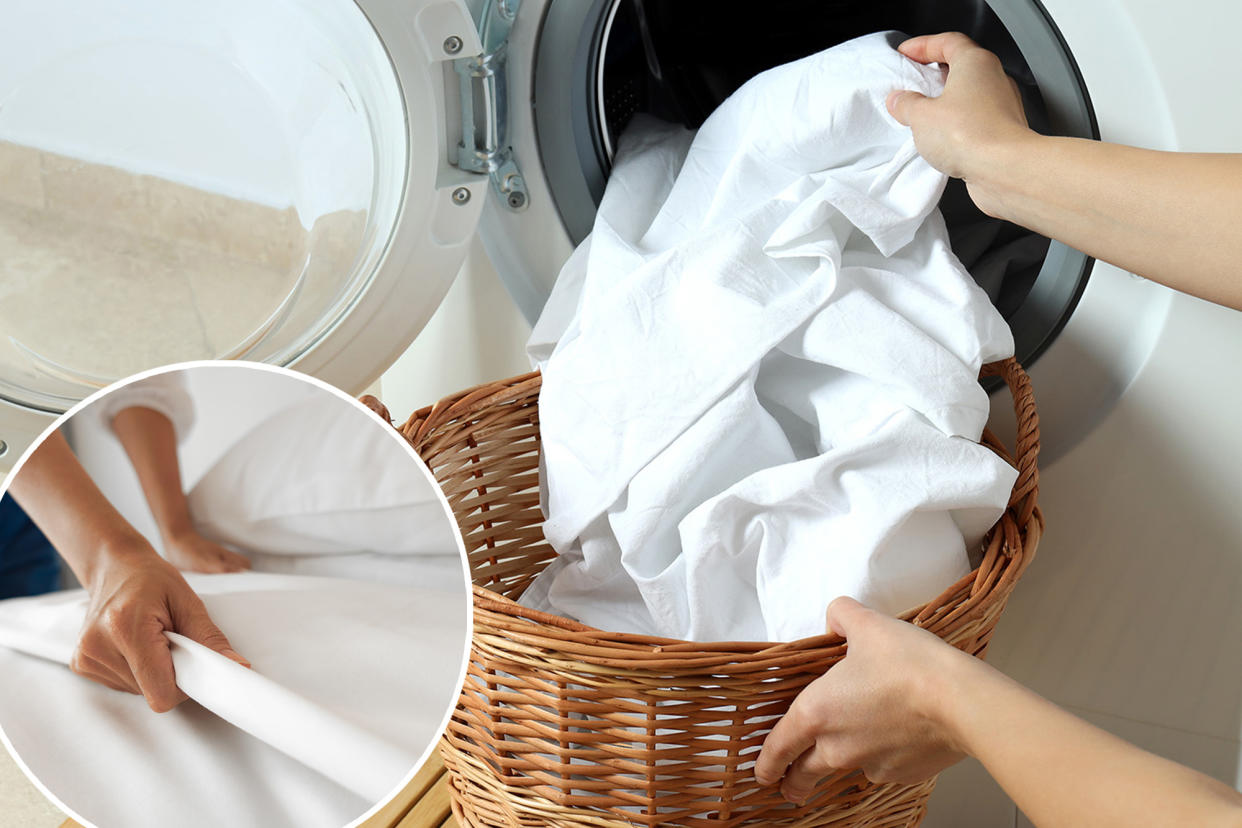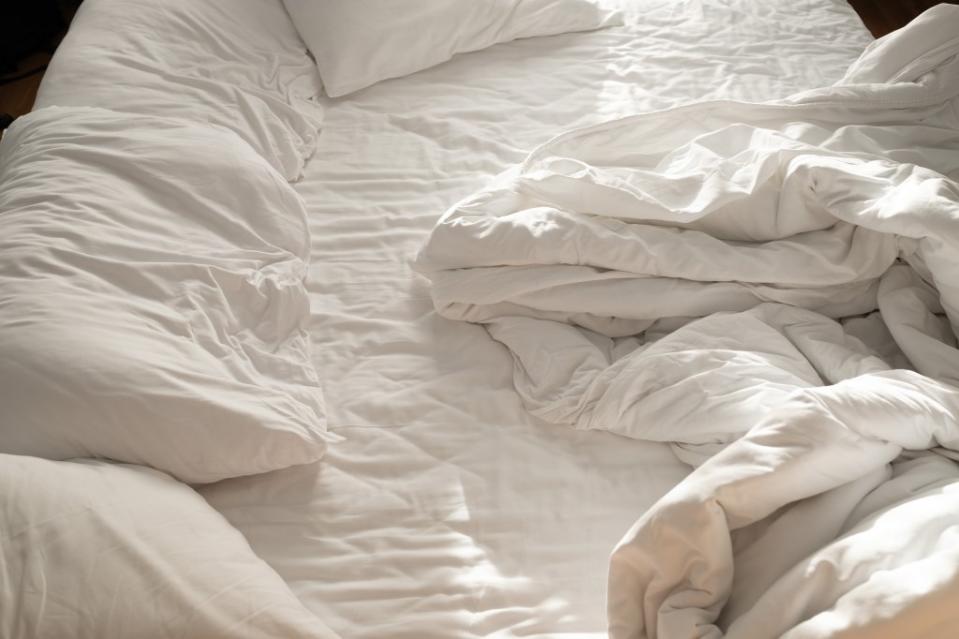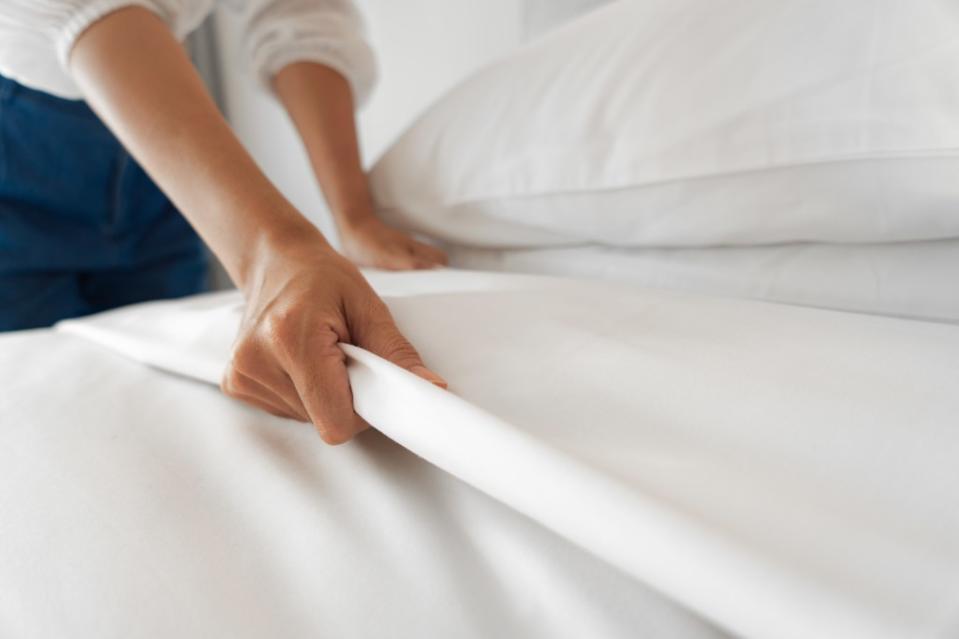If you don’t wash new bed sheets, you should — here is the horrifying reason why

Here’s a blanket statement: You should always toss new bedding in the wash before sleeping on it.
May is Better Sleep Month, a designation supported by the Better Sleep Council to help encourage healthier snooze habits. One way to achieve satisfying shuteye is to have fresh sheets on your bed.
TODAY.com reports you should replace your bedding every 18 to 24 months. Cleaning experts are sharing why you should drop the new sheets in the wash before hitting the hay — from eliminating dirt and allergens to killing pesky bugs.
Get rid of dirt and allergens
The bedding is new, but the factories and stores where it’s stored may be harboring dirt that could make its way onto your sheets — and into your bed.
Washing the bedding “removes the dust and dirt they may have accumulated while in the factory or on the shelf at the store,” Christian Alexander, the president and CEO of Nest Bedding, explained to MarthaStewart.com in 2022.

Benji Sleep founders Mark and Ben McLean warn that allergens that accumulate on your sheets can cause skin irritation.
Banish bed bugs
Storage facilities and stores can also be infested with insects like beetles and bed bugs.
Cleaning expert Lorraine Williamson told the Sun this week that she “doesn’t trust there won’t be bugs dormant” in new bedding. Bugs can find their way onto your new sheets during the manufacturing or packaging process, she cautioned.
Cleaning sheets and then drying them for 30 minutes with heat exceeding 120 degrees should kill any bugs, according to Terminix. While washing may remove bugs or eggs, the dryer kills them.

Strip unhealthy chemicals
Chemicals used in the dyeing and processing of fabric can spark a variety of health issues, with some reported to cause cancer.
“I would always recommend washing sheets before using them. Chemicals used in the processing and dyeing of the fabric can still linger on the product when you purchase it,” board-certified dermatologist Hayley Goldbach told Better Homes & Gardens last year.
“These chemicals can cause issues ranging from contact dermatitis (often to things like dispersed dyes) to possible carcinogenesis (cancer-causing chemicals),” she added.

She said that if people are very sensitive to chemicals, they may want to wash the sheets twice before using them or keep them in the washing machine for a few hours.
Goldbach also warns consumers to be wary of products that proclaim to be “wrinkle-free” because they can contain formaldehyde, which is a highly toxic poison.
The experts agree that you should wash your sheets before fitting them onto your bed and wash your sheets, pillowcases and duvet covers every two weeks thereafter.
Otherwise, bacteria and dust mites that accumulate in your bedding can increase your risk of infection, allergies and skin irritation.
People who suffer from allergies may want to wash their sheets weekly.
In addition to changing sheets often, people can keep clean sheets in a sealed plastic bag. Bedrooms should be vacuumed weekly, too.

